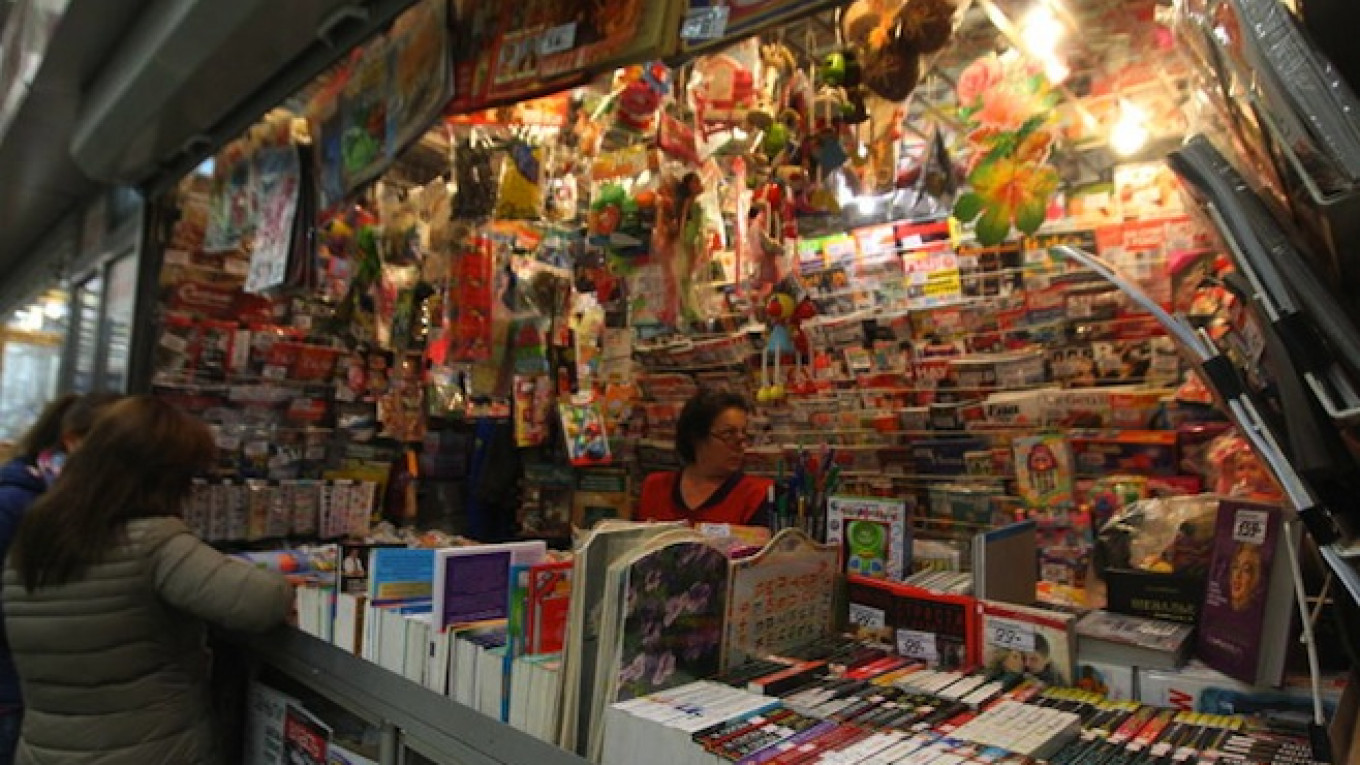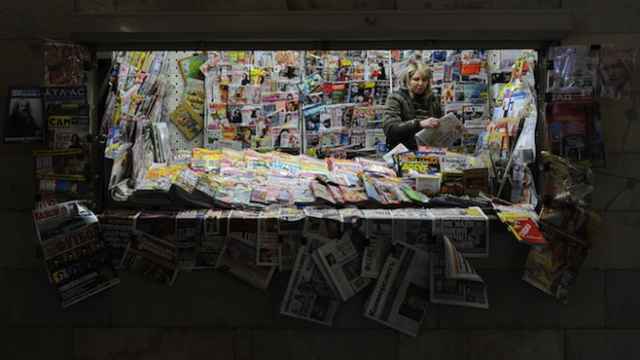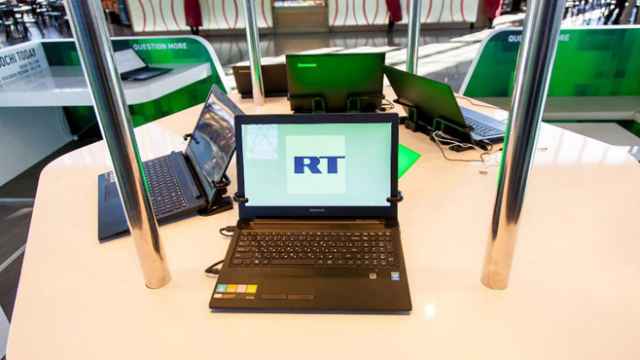Foreign companies will soon have to seek government permission before buying a more than 25 percent stake in newspapers or magazines in Russia, extending state control in an industry still reeling from legal changes earlier this year, business daily Vedomosti reported late last week.
The new amendments, which will go into force on Dec. 6, could appear extraneous. With Russia caught up in an information war with the West over Ukraine, President Vladimir Putin just last month signed a law that bans foreign companies from owning more than 20 percent in Russian media assets.
That law revised an earlier one that barred foreign companies from owning more than 50 percent of terrestrial television and radio stations, but bypassed print media. It is expected to radically alter Russia's print media landscape, where the three largest players — Burda, Hearst Shkulev Media and Sanoma Independent Media, the owner of The Moscow Times — are fully or partially foreign owned.
But these companies have more than two years — until Feb. 1, 2017 — to bring their ownership in line with the new law. The latest amendments will now give the government a say over how these companies deal with their assets in the meantime.
In particular, the amendments could complicate U.S. mass media group Hearst's reported plans to buy out Sanoma Independent Media's stake in their jointly owned Fashion Press, which publishes the Russian editions of Cosmopolitan, Esquire and more. Hearst recently agreed to use its preemptive right to purchase the other half of Fashion Press, Vedomosti reported, citing unidentified sources close to both sides of the deal.
Under the amendment, foreign buyers interested in print assets with a certain circulation level, which varies depending on the frequency of publication, will need to apply to Russia's Federal Anti-Monopoly Service. The watchdog will consider their applications and pass them on with a recommendation to the government committee on foreign investment, which will make the final decision.
The Federal Anti-Monopoly Service and the committee have been known to reject major deals in the past. In 2008, for example, the watchdog rejected Google's application to buy Russian contextual advertising system Begun.
Contact the author at d.damora@imedia.ru
A Message from The Moscow Times:
Dear readers,
We are facing unprecedented challenges. Russia's Prosecutor General's Office has designated The Moscow Times as an "undesirable" organization, criminalizing our work and putting our staff at risk of prosecution. This follows our earlier unjust labeling as a "foreign agent."
These actions are direct attempts to silence independent journalism in Russia. The authorities claim our work "discredits the decisions of the Russian leadership." We see things differently: we strive to provide accurate, unbiased reporting on Russia.
We, the journalists of The Moscow Times, refuse to be silenced. But to continue our work, we need your help.
Your support, no matter how small, makes a world of difference. If you can, please support us monthly starting from just $2. It's quick to set up, and every contribution makes a significant impact.
By supporting The Moscow Times, you're defending open, independent journalism in the face of repression. Thank you for standing with us.
Remind me later.






